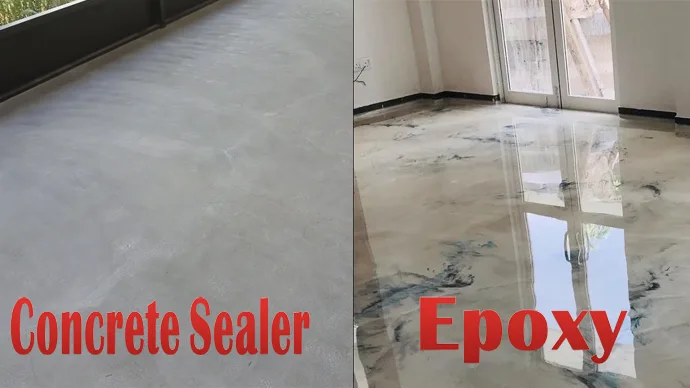Any concrete surface, be it your driveway, sidewalk, or patio, is subject to deterioration & corrosive agents can take their toll, causing cracks, chips, and other damage. Thus, a sealant may be applied to your concrete to protect it and maintain its appearance. But what kind of sealer should you use?
Generally, there are two types of protecting sealer for concrete: Concrete sealer and Epoxy sealer. Typically, concrete sealers consist of acrylic or polyurethane and form a thin protective layer on top of the concrete, which resists staining and fading.
As a stronger, longer-lasting alternative to concrete sealers, epoxy forms a thick protective concrete floor coating that adheres tightly to concrete surfaces. Each one has unique features, so pick one that fits your needs. For a better understanding of concrete sealer vs epoxy, please continue reading.
Concrete Sealer vs Epoxy: What are the Differences?
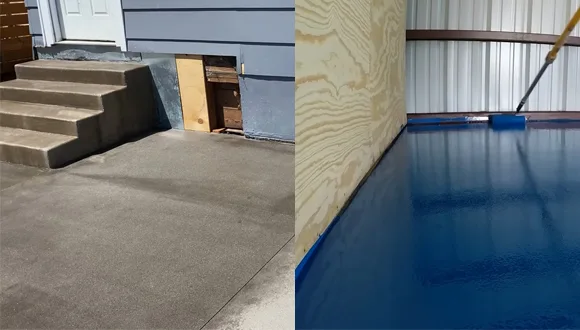
Regarding protecting concrete surfaces, you must choose the correct option for your needs. Although they may appear to serve the same purpose, it is essential to understand the difference between the two products.
Here are the fundamental differences between concrete sealer and epoxy:
Finish Type
The most common way to narrow your choices is to consider the type of finish you want. Epoxy sealers provide a high-gloss finish ideal for areas with a lot of foot traffic. But, they tend to be difficult to apply and require special equipment.
In contrast, concrete sealers provide a more natural look and are easier to apply. They also offer a variety of different sheens from matte to glossy & better protection against staining and fading.
Finish Color
Deciding whether to use a sealer or an epoxy to protect your concrete floors is a matter of function and aesthetics. A concrete sealer is the best option for a clear, protective coating that won’t fade or yellow over time. They also resist fading and UV damage, keeping your floors looking new.
Epoxies are available in both clear and colored options. While clear epoxies offer the same benefits as concrete sealers, colored epoxies can be used to create a unique, custom look for your floors.
Longevity & Durability
If you’re looking for a rigid, durable, abrasion-resistant finish, then epoxy coating is the way. Epoxies are thicker than concrete sealers so that they can resist more abrasion. They’re also easy to clean and maintain.
Concrete sealers can be a good choice if you’re looking for a cheaper option that’s still durable and easy to maintain. But concrete sealers don’t have the same thickness as epoxy floor coatings, so that they won’t last as long.
Chemicals Resistances
Chemicals can negatively affect the sealant on your concrete floor, causing it to break down and lose its protective properties. Concrete sealers generally have a higher chemical resistance than epoxy sealers. This means they will maintain their protective properties even when chemicals are present.
Application Place
Epoxy sealers create a hard, durable surface resistant to scratches and stains. They are typically used in high-traffic areas such as commercial kitchens and factory floors. Despite this, epoxy sealers are not UV stable and may yellow or discolor in sunlight.
On the other hand, Concrete sealers provide a more flexible surface & can be used on interior and exterior concrete. They are often used on exterior concrete surfaces such as driveways and patios. In general, these sealers provide better UV resistance than epoxy sealers.
Both epoxy and concrete sealers have their advantages and disadvantages. To get the best results, select the right product. Below is a comparison table for better understanding:
| Type of Sealer | Finish Type & Color | Drying Time | Longevity | Application Place | Pricing |
| Concrete Sealer | High-gloss clear or colored | Less than one hour | Up to 5 years | Indoor & Outdoor | Less expensive |
| Epoxy Sealer | Matte or Glossy | Several hours | Up to 10 years | Indoor only | More expensive |
Which Applications are Most Appropriate for Concrete Sealers and Epoxy?
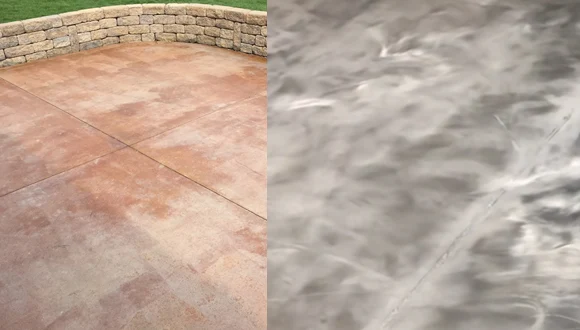
Applying a sealer to your concrete floor is an excellent way to protect it from staining and wear. But what are the best applications for each of these products? Here’s a quick rundown:
Concrete Sealers
Concrete sealers are typically best for indoor and outdoor applications, as they can help to protect your floor from traffic and scratches. They are suited for-
- High-traffic areas: Concrete sealers are essential to keeping high-traffic areas looking their best. These sealers safeguard against these damaging factors, helping to keep your concrete looking new for longer.
Also, sealers can resist mold growth, making them essential to keeping your concrete clean and presentable.
- Wet areas: Concrete sealers protect concrete surfaces from water damage by creating an invisible layer that repels water and dampness. Sealers can be applied to both new and old wet concrete surfaces (such as pool-paver), and they will not change the appearance or texture of the concrete.
Also, sealers can help to extend the lifespan of concrete surfaces by preventing water damage.
- Concrete Countertops: Concrete sealers provide a hidden barrier that helps to protect the surface of your countertops from stains and damage. Sealed concrete with sealers will not etch or scratch as easily as unsealed concrete, making it a more durable option for countertops.
Concrete sealing also brings out the actual color of the countertop, allowing you to create a beautiful, unique look for your kitchen or bathroom.
- Stamped or exposed-aggregate concrete: Sealing your stamped concrete with a sealant can help to prolong its lifespan by protecting it from the elements and day-to-day abuse.
Also, a sealer will help enhance the concrete’s color and vibrancy while protecting against fading, deterioration, and staining.
- Pool or garden paver: Pool and garden pavers are a beautiful and practical way to add style and function to your outdoor space. A good quality concrete sealer will help protect your pavers from the sun, rain, and other environmental hazards and help keep them looking their best.
When applied properly, a sealer will create an imperceptible layer that will repel water and dirt while still allowing the pavers to breathe.
Epoxy Sealer
Epoxy coating is better suited for indoor applications. It’s more durable and can withstand heavier loads. They are suited for-
- Internal factory floors: In any factory, the internal floor is constantly exposed to heavy traffic, spilled chemicals, and other materials that can cause degradation.
Over time, this can lead to cracks, holes, and other damage that can create trip hazards and make it challenging to keep the area clean.
Epoxy sealers provide a durable, long-lasting solution that can help to protect the floor and extend its life. These sealers form a hard, impermeable surface resistant to moisture and abrasion.
- Workshops: Workshop floors are subject to much damage from tools, equipment, and materials. This can cause cracks, chips, and other damage, making the floor unsafe and challenging to clean.
An epoxy coating can provide a protective barrier against these damaging factors and help to keep your floor looking new for longer.
- Food preparation areas: They are one of the most popular choices for finishes in food preparation areas. They provide a hard, durable surface that is easy to clean and highly resistant to staining and bacteria growth. This makes them an ideal finish for areas subject to high contamination levels.
You Can Also Read: Grout Sealer: How Do You Apply It?
Are Concrete Sealer and Epoxy the Same?
Although both are used as protective coatings, concrete sealer and epoxy are different. The main difference between the two is that concrete sealers penetrate the surface to form a seal, while epoxy creates a thick floor coating above the concrete surface.
Both sealers and epoxy can improve the appearance of concrete floors and make them easier to clean. But, they are not the same product. Sealers are typically less expensive than epoxy, but they must be reapplied more often. Epoxy is more durable and long-lasting, but it is also more costly.
Can You Use Epoxy Over the Sealer?
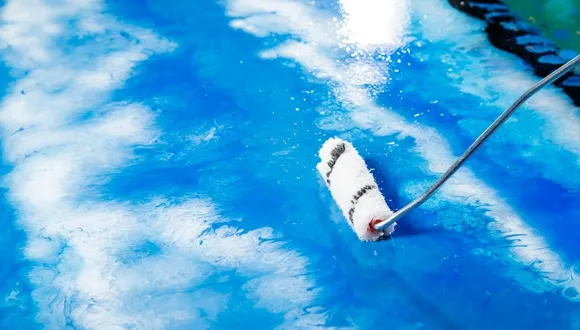
Many homeowners are looking for ways to improve the look of their concrete floors, and an epoxy is a popular option. Resins like epoxy can be applied to concrete to create a durable and attractive surface. Epoxy should only be applied to concrete after existing sealers have been removed.
Epoxy is a robust and durable material, but it is not designed to be used as a topcoat. Applying epoxy over a sealer will likely create a peeling and flaking mess.
Also, the sealer will prevent the epoxy from properly bonding to the concrete coating, leading to serious durability problems. If you’re interested in epoxy flooring for your home or business, be sure to have any existing sealers removed first.
How Long Does the Epoxy Sealer Last?
When choosing a sealer for your concrete floors, epoxy is widely used for its durability and long-lasting effects. But just how long does an epoxy sealer last? Generally speaking, a high-quality epoxy concrete sealer can last anywhere between 5 to 10 years before reapplying.
But, several factors can affect the longevity of an epoxy sealer, including the type of concrete it is applied to, the amount of traffic the floor sees, and the level of care and maintenance it receives.
With that said, even with proper care, an epoxy sealer will eventually degrade and lose its effectiveness. When this happens, you should have the sealer reapplied to prevent the concrete from deterioration.
Does Epoxy Waterproof the Concrete?
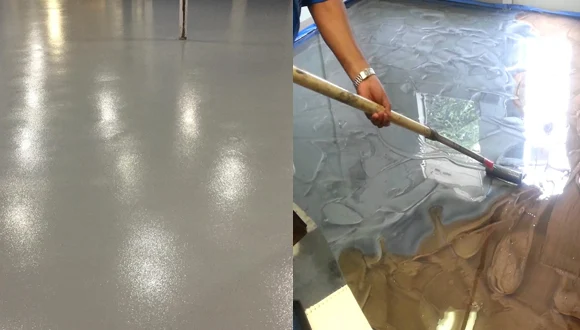
Epoxy is a type of resin that creates a waterproof shield on concrete surfaces. When applied correctly, epoxy will form a water-tight seal to prevent water from seeping through cracks or pores in the concrete.
Also, epoxy is resistant to abrasion and UV light, making it an ideal choice for areas exposed to high traffic or direct sunlight. But remember that epoxy is not a magic solution for all waterproofing needs.
If the concrete surface is already damaged or compromised, epoxy may not be able to provide a completely effective seal. In these cases, it is often necessary to repair the concrete before applying the epoxy.
Does Epoxy Seal Cracks in Concrete?
If you have a cracked concrete surface, you may wonder if an epoxy seal can be used to fill the cracks and restore the surface. Epoxy is often used to fill cracks in concrete. It is a flexible material that bonds well to concrete, perfect for repairing cracks.
It is also durable and resistant to weathering, so it will help to prevent further damage to the concrete. When applied correctly, epoxy can effectively seal cracks and restore the structural integrity of concrete surfaces.
How Long Does Polyurethane Concrete Sealer Last?
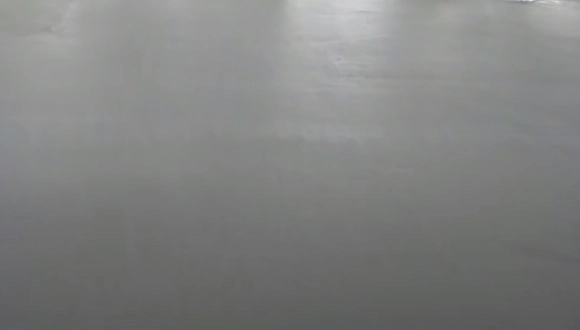
Polyurethane concrete sealer is a floor coating applied to concrete to protect it from wear and tear. This type of sealer is typically made from polyurethane resin, a synthetic material known for its durability.
When applied correctly, polyurethane sealer can last up to 5 years before re-applying. But, if the surface is heavily trafficked, the lifespan of the sealer may be closer to 5 years. These sealers are typically clear or amber in color and can be either glossy or matte.
Can You Use Concrete Sealer Instead of Epoxy?
Most people are familiar with epoxy, a strong and durable resin often used in glue, sealants, and coatings. Regardless, you may be less familiar with concrete sealer, a similar product sometimes used as an alternative to epoxy. So, can concrete sealer be used instead of epoxy?
Epoxy and concrete sealer are both commonly used to protect concrete floors from damage, but they are two different products with different properties, so they are not interchangeable. Depending on their application, epoxy and concrete sealer can be practical for protecting concrete.
In general, epoxy is more durable than concrete sealer and is better suited for applications requiring a high level of protection. Yet, it is also more expensive and more difficult to apply. Thus, whether you use epoxy or concrete sealer will depend on your specific needs.
You Can Also Read:
- Is it a good idea to seal the chimney pipe?
- Do power washers remove concrete sealer?
- Is it possible to pressure wash the exposed aggregate concrete sealer off?
- How do I seal and waterproof my basement?
- What is the lifespan of stone sealer?
